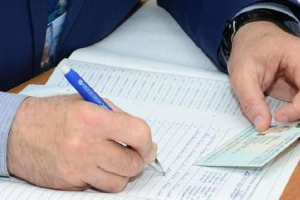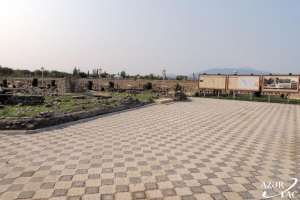


The UN assistant secretary-general for human rights on Tuesday decried the continued "ethnic cleansing" of the Rohingya in Myanmar’s restive Rakhine state and warned of a potential “genocide”.
"Ultimately, the world cannot allow the authors of this brutal case of ethnic cleansing -- which many believe may constitute genocide -- to be rewarded," Andrew Gilmour said at the end of a four-day visit to Bangladesh where refugees, who have been fleeing Myanmar since last August, are located.
"Repatriation of the Rohingya to their homes and their country will be necessary, as will accountability for the crimes against humanity that may have been committed against them," Gilmour added in a statement.
Noting that Myanmar’s Maungdaw township on the border of Bangladesh has already largely emptied of its Rohingya population, Gilmour said new arrivals into Bangladesh have been coming from townships farther inside.
"The ethnic cleansing of Rohingya from Myanmar continues. I do not think we can draw any other conclusion from what I have seen and heard in Cox’s Bazar," Gilmour said.
"The nature of the violence has changed from the frenzied blood-letting and mass rape of last year to a lower intensity campaign of terror and forced starvation that seems to be designed to drive the remaining Rohingya from their homes into Bangladesh," Gilmour said.
Later on Tuesday, UN spokesman Rupert Colville said in a news conference in Geneva the situation in Myanmar “could be genocide”.
Underlining the widespread and systematic violence against the Rohingya, Gilmour said: “The Government of Myanmar is busy telling the world that it is ready to receive Rohingya returnees, while at the same time its forces are continuing to drive them into Bangladesh.
"Safe, dignified and sustainable returns are of course impossible under current conditions. The conversation now must focus on stopping the violence in Rakhine State, ensuring accountability for the perpetrators, and the need for Myanmar to create conditions for return," Gilmour said.
Myanmar and Bangladesh signed a repatriation deal for the refugees earlier this year, but authorities in Myanmar have refused to allow any international body including the UN to oversee the process.
The Rohingya, described by the UN as the world's most persecuted people, have faced heightened fears of attack since dozens were killed in communal violence in 2012.
Since Aug. 25, 2017, more than 750,000 refugees, mostly children and women, have fled Myanmar and crossed into Bangladesh after Myanmar forces launched a crackdown on the minority Muslim community, according to the Amnesty International.
The refugees are fleeing a military operation in which security forces and Buddhist mobs have killed men, women and children, looted homes and torched Rohingya villages.
At least 9,000 Rohingya were killed in Rakhine state from Aug. 25 to Sept. 24 last year, according to Doctors Without Borders.
In a report published on December 12, 2017, the global humanitarian organization said the deaths of 71.7 percent or 6,700 Rohingya were caused by violence. They include 730 children below the age of five.
The UN documented mass gang rapes, killings -- including of infants and young children -- brutal beatings, and disappearances committed by security personnel. In a report, UN investigators said such violations may have constituted crimes against humanity.














